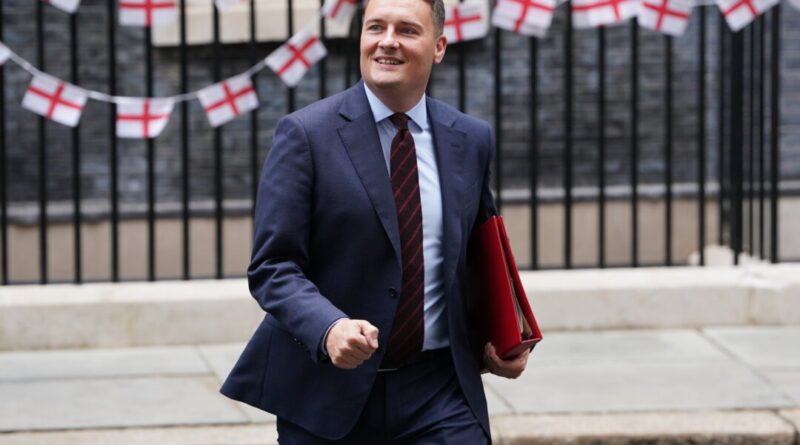Minister suggests that crisis in social care is exacerbating issues in NHS.
Wes Streeting highlighted the enormity of the challenge that the government faces in managing health and social care, labeling it as the most severe crisis in the history of the NHS.
The crisis in social care is exacerbating the existing issues within the NHS, according to Secretary of State for Health and Social Care Wes Streeting.
Streeting mentioned that challenges in social care are directly impacting the operations of the NHS, either at the front entrance or causing congestion in hospital discharge processes, leading to many health service problems being rooted in social care issues.
Speaking at a fringe event during the Labour Party conference in Liverpool, Streeting emphasized the existence of a significant crisis in social care. He expressed his belief that people are genuinely surprised by the costs and the subpar quality of social care services when they come to need them.
“The challenge we’ve got in health and social care is enormous. It’s the worst crisis in the history of the National Health Service,” he reiterated.
The most common reason for delays was disputes over funding for social care. Other issues included lack of communication, inadequate information from hospital discharge teams, delays in care assessments, and transportation arrangements.
Challenges in the NHS
Streeting acknowledged the findings of the Darzi report, which revealed significant shortcomings within the NHS.
Responding to the report, Prime Minister Sir Keir Starmer stressed the need for fundamental NHS reforms. Citing inefficiencies and productivity declines, Starmer emphasized the necessity for reform before allocating more taxpayer funds to address NHS challenges.
Streeting echoed Starmer’s sentiments, advocating for NHS reform to address long-term sustainability amid increasing demands and financial pressures.
He warned that failure to reform could endanger the NHS’s current public service and free-for-all ethos.
Care Quality Commission Issues
Challenges extend to the regulator overseeing NHS and social care services.
An interim report by Dr. Penny Dash highlighted deficiencies in the Care Quality Commission’s ability to identify poor performance in care homes, GP practices, and hospitals during inspections. The report revealed instances of health and social care settings not being reassessed for extended periods, with some facilities not rated since 2014.
Streeting criticized the CQC, deeming it “not fit for purpose” based on Dash’s findings.
The Department for Health and Social Care appointed Professor Sir Mike Richards to review CQC assessments, and increased oversight to ensure implementation of Dash’s recommendations.
Kate Terroni, interim chief executive of the CQC, affirmed the commitment to enhancing inspection frequency and expertise within the organization to bolster care quality and public trust.
This report includes contributions from PA Media.





